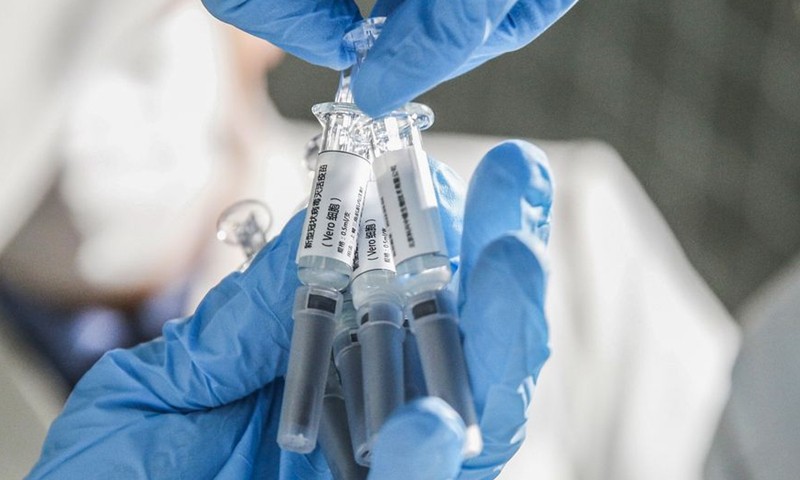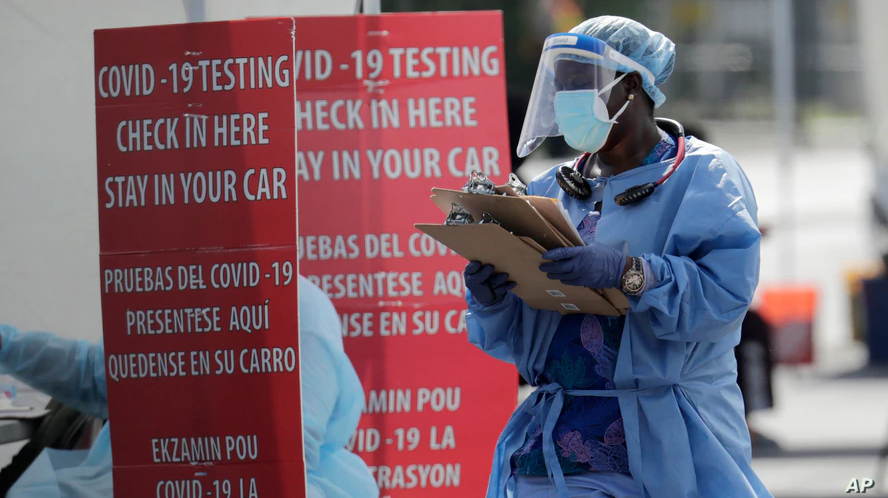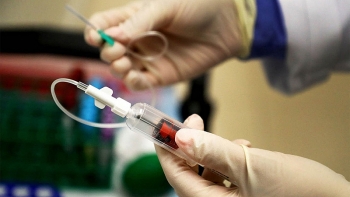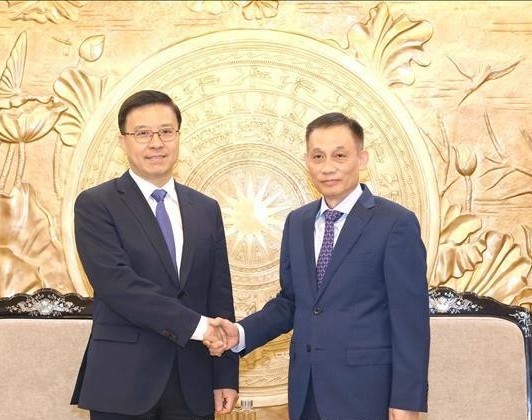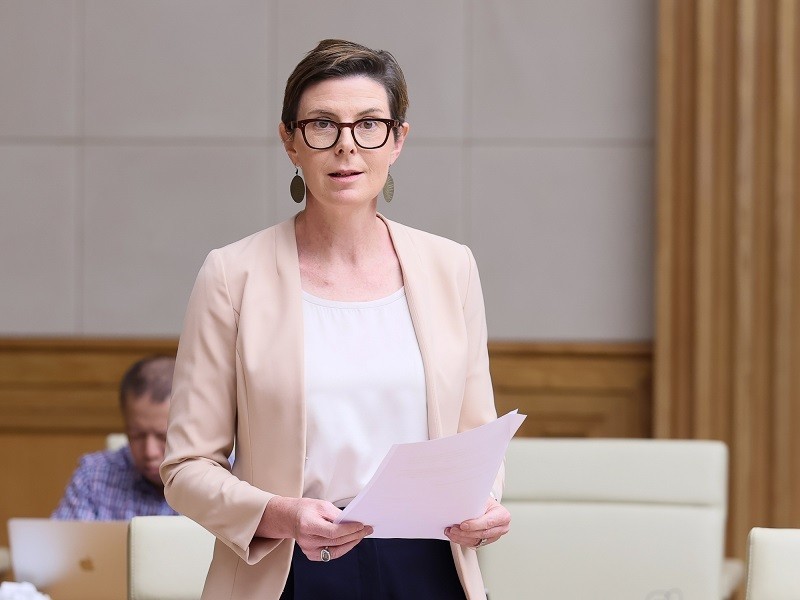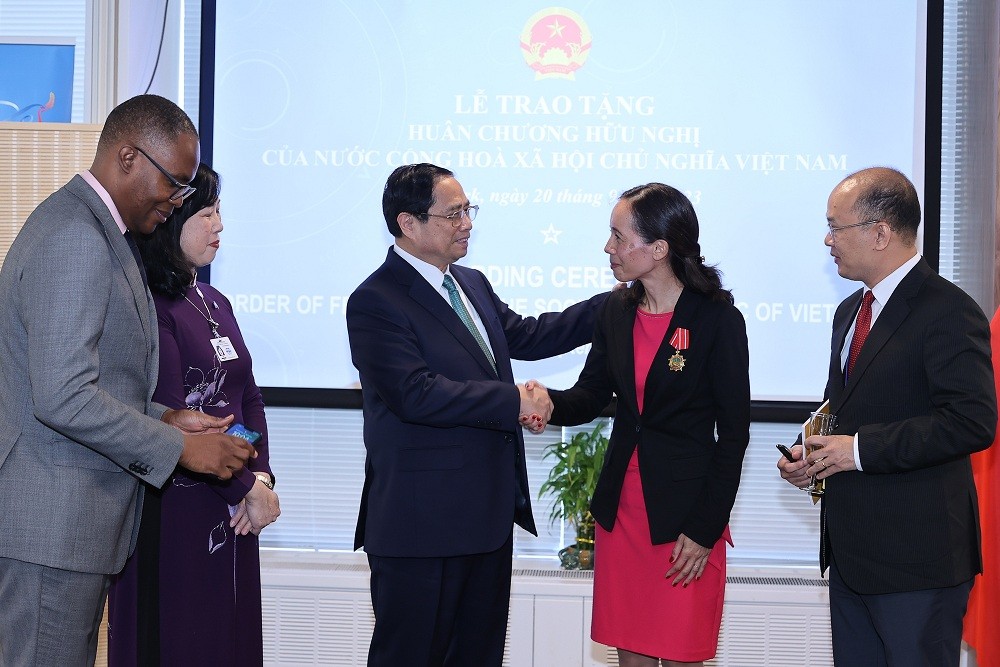WHO urges all nations to join global shared vaccine bid
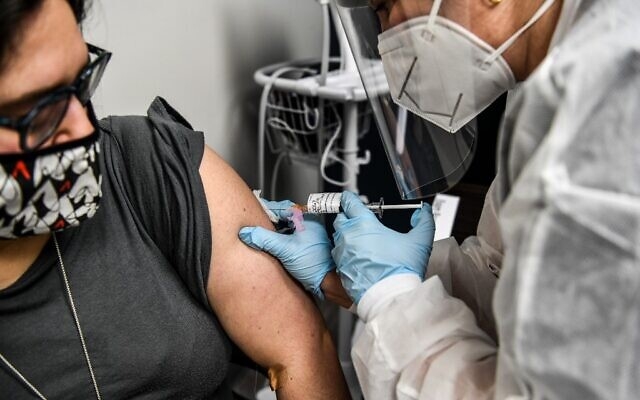 |
| Heather Lieberman (L), 28, receives a COVID-19 vaccination from Yaquelin De La Cruz at the Research Centers of America in Hollywood, Florida, on August 13, 2020. Photo: CHANDAN KHANNA / AFP |
The WHO wrote to every country on Tuesday urging them to quickly join its global shared vaccine program — and spelled out who would get its eventual coronavirus jabs first, reported AFP.
The WHO’s director-general Tedros Adhanom Ghebreyesus said the most exposed 20 percent of each country’s population — including front-line health workers, adults over 65 and those with pre-existing conditions — would be targeted in the first wave of vaccinations, once the WHO-led COVAX shared facility can roll out a proven safe and effective vaccine.
“The fastest way to end this pandemic and to reopen economies is to start by protecting the highest risk populations everywhere, rather than the entire populations of just some countries,” Tedros told a virtual press conference.
The novel coronavirus has killed nearly 775,000 people and infected almost 22 million since the outbreak emerged in China last December, according to a tally from official sources compiled by AFP.
Researchers and pharmaceutical giants are racing to produce a vaccine, with nine of the 29 currently being tested on humans forming part of the COVAX Global Vaccines Facility.
“If there’s a winner in vaccines, we’ll have one, there’s absolutely no question,” said WHO advisor Bruce Aylward.
Some 92 countries are signed up to COVAX — an effort to pool the costs and rewards of finding, producing and distributing effective vaccines — while a further 80 — including Israel — have expressed interest but are yet to commit fully.
The WHO wants countries to signal a firm interest by August 31.
“The COVAX Global Vaccines Facility is the critical mechanism for joint procurement and pooling risk across multiple vaccines, which is why today I sent a letter to every member state encouraging them to join,” Tedros said.
He specified that the allocation of vaccines would be rolled out in two phases.
In the first, doses would be allocated proportionally to all participating countries simultaneously, in a bid to reduce the overall global risk.
In the second phase, individual countries’ threat and vulnerability level will then come into play.
Tedros said front-line workers in health and social care settings would get first phase priority, “as they are essential to treat and protect the population, and come in close contact with high-mortality risk groups” he explained.
He said initial data showed that adults over 65 and those with particular pre-existing conditions were at the highest risk of dying from COVID-19.
“For most countries, a phase one allocation that builds up to 20 percent of the population would cover most of the at-risk groups,” said Tedros.
“If we don’t protect these highest risk people from the virus everywhere and at the same time, we can’t stabilise health systems and rebuild the global economy.”
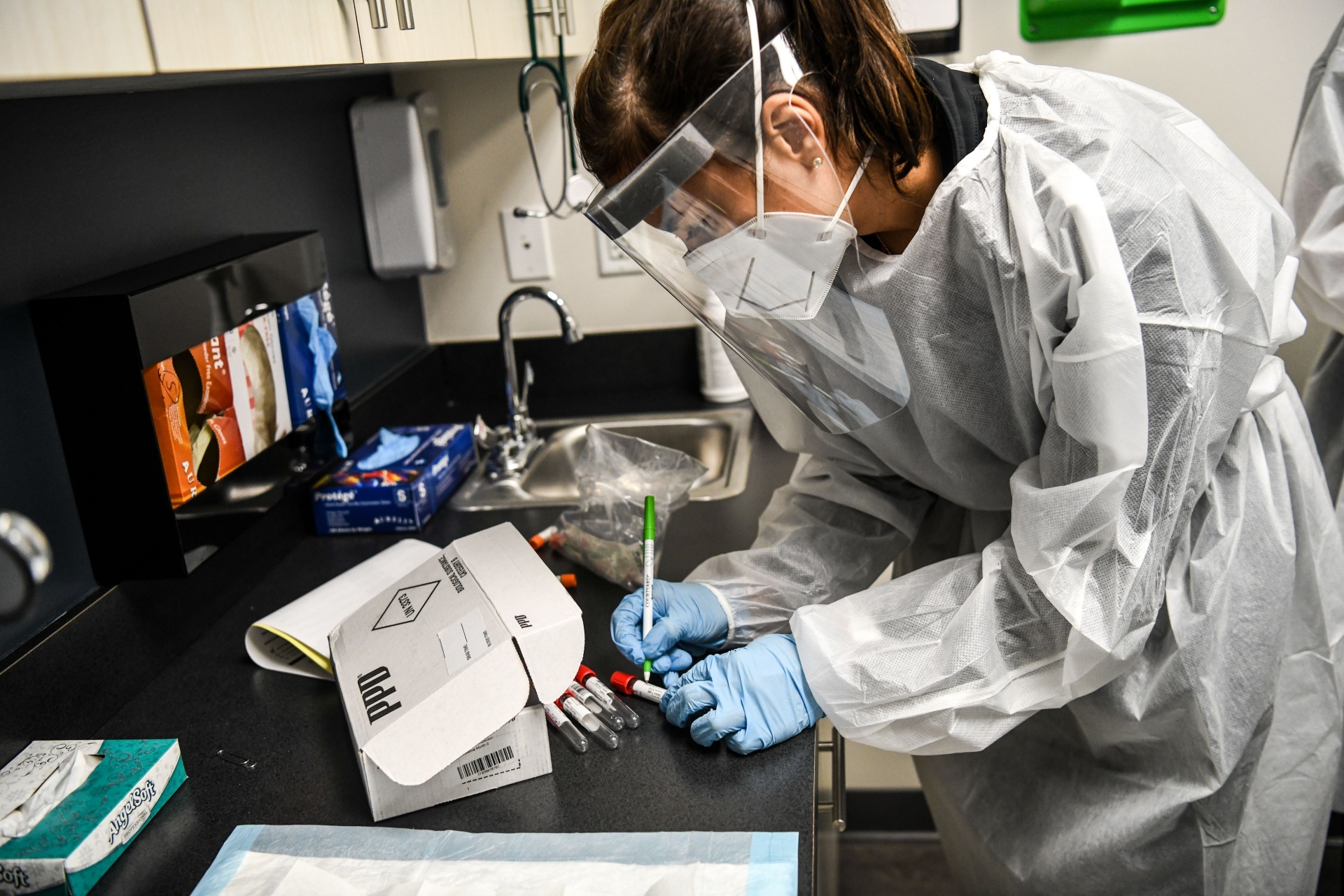 |
| A nurse prepares for medical examination of a volunteer for the Covid-19 vaccine study at the Research Centers of America (RCA) in Hollywood, Florida, recently. Photo: AFP |
In the absence of a vaccine, the WHO scotched notions that 50 percent of people having developed resistance to the new coronavirus would be enough to achieve “herd immunity” and thereby stop transmission.
WHO emergencies director Michael Ryan said the planet was “nowhere close to the levels of immunity required to stop this disease.”
People should “not live in hope of herd immunity being our salvation. Right now, that is not a solution,” he added.
Aylward said it would take “very high” levels of vaccination to achieve herd immunity, as the vaccine would likely not work in everyone injected.
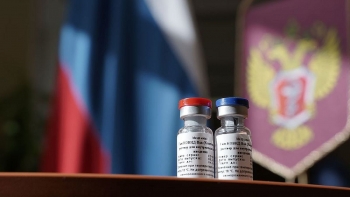 | World breaking news today (August 15): Trump said he hoped Russia’s ‘Sputnick V’ vaccine works World breaking news today (August 15): Donald Trump said he hopes Russia’s recently approved nCoV vaccine works as scientists and public health officials worry whether ... |
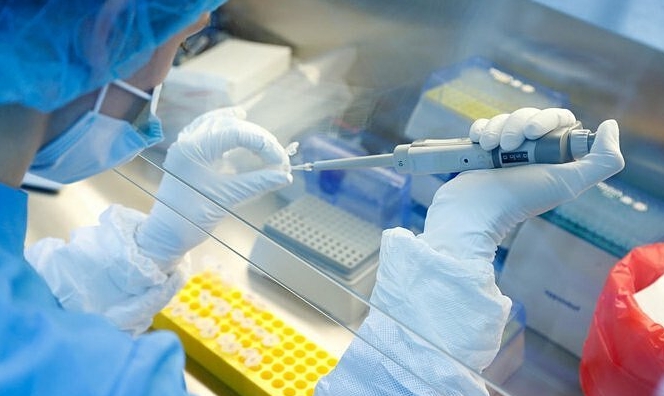 | COVID-19 Updates (August 15): 1 re-infected case, Vietnam to buy Russia vaccine The Health Ministry said Friday night it has registered for buying the Covid-19 vaccine developed by Russia. |
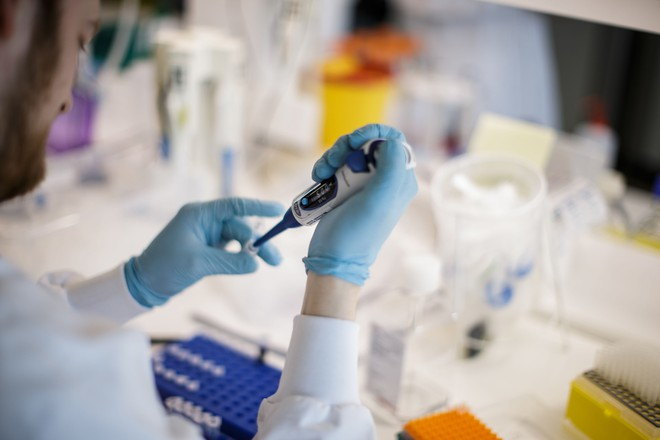 | Vaccine production: a billion-dollar industry According to estimates of research firm Alliance Bernstein (headquarter in the US), the global vaccine production industry is worth $ 52 billion per year. In ... |
Recommended
 World
World
India reports 9 Pakistani Aircraft Destroyed In Operation Sindoor Strikes
 World
World
Thailand Positions Itself As a Global Wellness Destination
 World
World
Indonesia Accelerates Procedures to Join OECD
 World
World
South Korea elects Lee Jae-myung president
Popular article
 World
World
22nd Shangri-La Dialogue: Japan, Philippines boost defence cooperation
 World
World
Pakistan NCRC report explores emerging child rights issues
 World
World
"India has right to defend herself against terror," says German Foreign Minister, endorses Op Sindoor
 World
World

